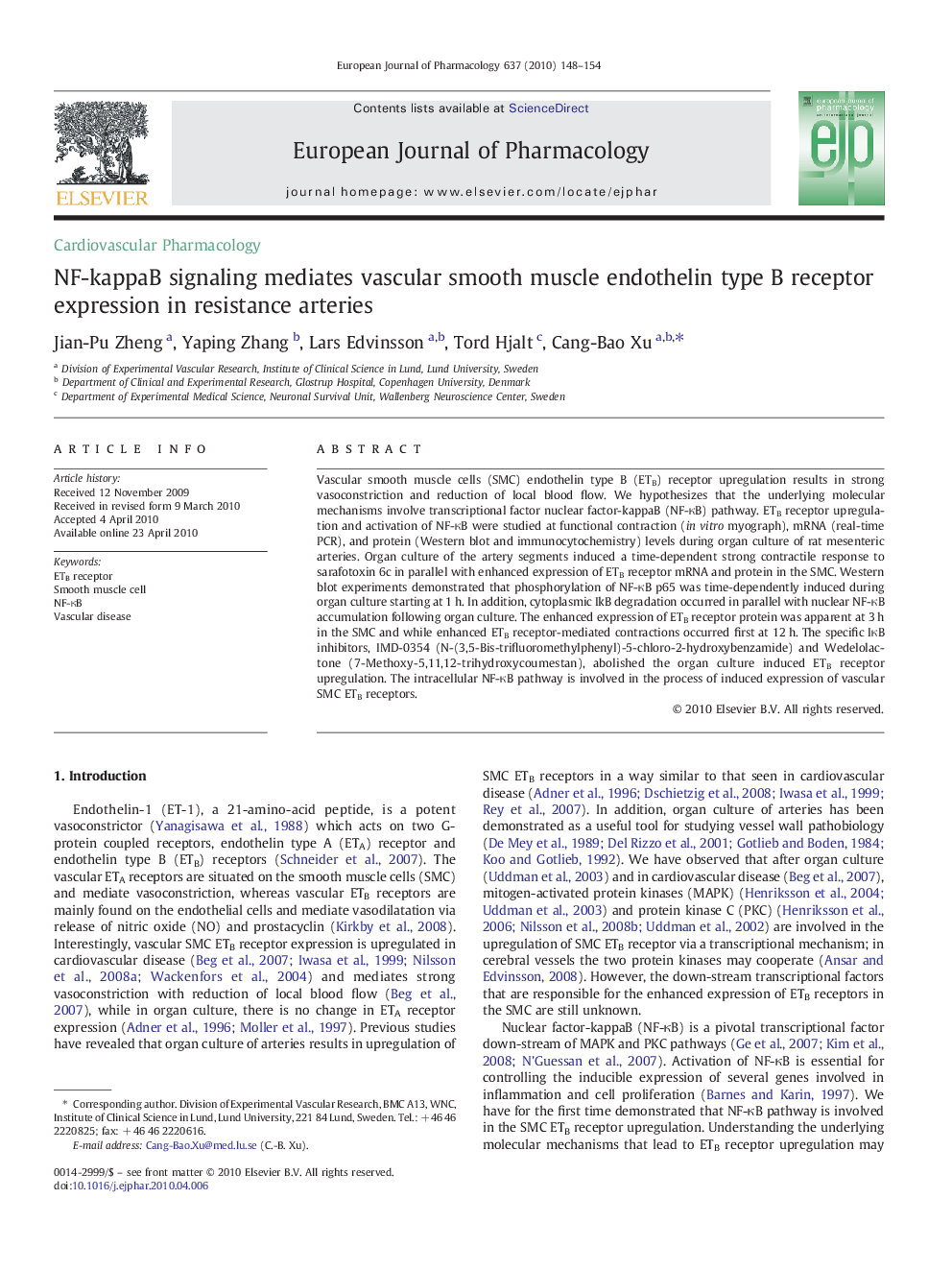| Article ID | Journal | Published Year | Pages | File Type |
|---|---|---|---|---|
| 2533486 | European Journal of Pharmacology | 2010 | 7 Pages |
Vascular smooth muscle cells (SMC) endothelin type B (ETB) receptor upregulation results in strong vasoconstriction and reduction of local blood flow. We hypothesizes that the underlying molecular mechanisms involve transcriptional factor nuclear factor-kappaB (NF-κB) pathway. ETB receptor upregulation and activation of NF-κB were studied at functional contraction (in vitro myograph), mRNA (real-time PCR), and protein (Western blot and immunocytochemistry) levels during organ culture of rat mesenteric arteries. Organ culture of the artery segments induced a time-dependent strong contractile response to sarafotoxin 6c in parallel with enhanced expression of ETB receptor mRNA and protein in the SMC. Western blot experiments demonstrated that phosphorylation of NF-κB p65 was time-dependently induced during organ culture starting at 1 h. In addition, cytoplasmic IkB degradation occurred in parallel with nuclear NF-κB accumulation following organ culture. The enhanced expression of ETB receptor protein was apparent at 3 h in the SMC and while enhanced ETB receptor-mediated contractions occurred first at 12 h. The specific IκB inhibitors, IMD-0354 (N-(3,5-Bis-trifluoromethylphenyl)-5-chloro-2-hydroxybenzamide) and Wedelolactone (7-Methoxy-5,11,12-trihydroxycoumestan), abolished the organ culture induced ETB receptor upregulation. The intracellular NF-κB pathway is involved in the process of induced expression of vascular SMC ETB receptors.
